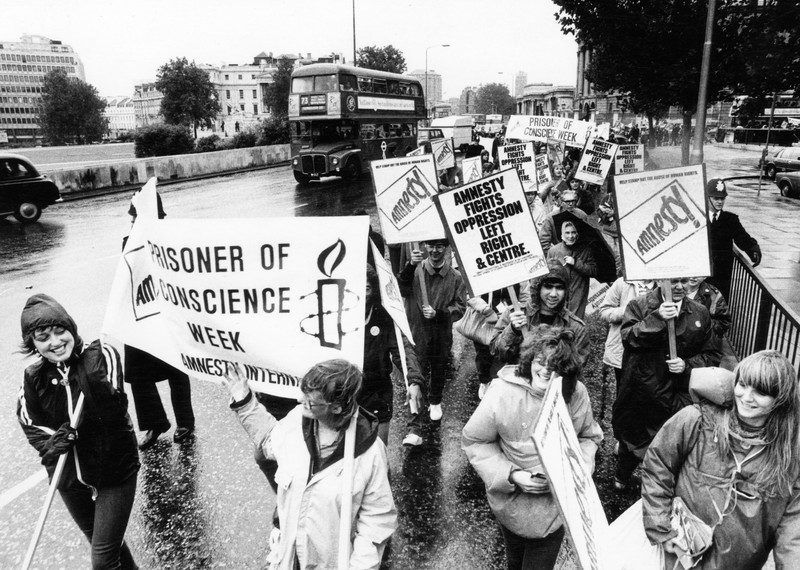
How does a movement of over 10 million people get started? The answer is simpler than you might think.
In 1961, British lawyer Peter Benenson became outraged by a story he read in the news. Most of us can relate to that feeling, but Peter took his anger and turned it into a powerful force for change.
“Open your newspaper - any day of the week - and you will find a report from somewhere in the world of someone being imprisoned, tortured or executed because his opinions or religion are unacceptable to his government.
"The newspaper reader feels a sickening sense of impotence. Yet if these feelings of disgust all over the world could be united into common action, something effective could be done.”Amnesty International founder Peter Benenson

In his own words, Peter was “spurred into action” by reading an article about two Portuguese students who had been jailed for raising a toast to freedom in their local Lisbon restaurant. Portuguese people had been living under an authoritarian regime, known as Estado Novo, since the early 1930s. Student movements faced intense political and ideological repression which often resulted in the imprisonment of their leaders. Publicly calling for liberty from this regime was a bold and courageous act.
Peter became aware that lawyers like him “were not able sufficiently to influence the course of justice in undemocratic countries.” He knew it would take a larger group which “harnessed the enthusiasm of people all over the world who were anxious to see a wider respect for human rights.”

He turned to fellow lawyer Louis Blom-Cooper for suggestions, and with Louis’s support, Peter wrote an article which was published in The Observer, a popular UK newspaper at the time. Titled ‘The Forgotten Prisoners’, this piece called for a global movement to collect, publish and distribute information about prisoners of conscience who, like the Portuguese students, had been unjustly imprisoned for their opinions and beliefs.
While today, news platforms often share each other’s content online, Peter’s article was reprinted in newspapers across the world. His call to action sparked the idea that people everywhere can unite in solidarity for justice and freedom. This inspiring moment didn’t just give birth to an extraordinary movement, it was the start of extraordinary social change. In pursuing their vision of global collaboration, Peter and Louis gave life to the collective campaigning that defines Amnesty International’s work today.

Later that year, Peter convened the first international meeting of people inspired by his article. It was there that the group decided to establish “a permanent international movement in defence of freedom of opinion and religion”, and Amnesty International was born. Peter went on to write a book which told the stories of nine people facing persecution for their efforts to stand up for human rights. This kind of storytelling remains a key part of the work of Amnesty International, like our annual global letter-writing campaign, Write for Rights.

In Peter’s mind, anyone who becomes concerned about the suffering of others could help to make a difference. For more than 60 years now, the Amnesty movement has been uniting people like you to take action for a better world. From London to Santiago, Sydney to Kampala, people have come together to insist that the rights of each and every human are respected and upheld.
On our 50th anniversary, a commemorative song was released in homage to those Portuguese students and their inspiring bravery. Performed by nearly 50 artists from around the world, the song reminds us of all that’s been achieved since that fateful toast in Lisbon, as well as all the people who still need us to fight with them for their freedom.
Today, our Rapid Response Network is on the frontline of defending human rights. The concept is simple: Take Action, Change a Life.
